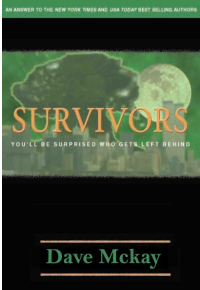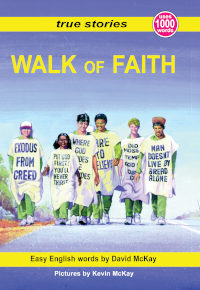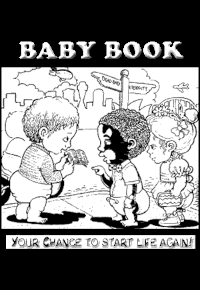"As you go, preach, saying, 'The kingdom of heaven is at hand.' Heal the sick, cleanse the lepers, raise the dead, cast out devils. Freely you have received. Freely give." (Matthew 10:7-8)
It's all a little daunting to those of us who do not fancy ourselves to be miracle workers. But perhaps we (and maybe even those who do fancy themselves to be miracle workers!) have overlooked something.
I first saw this command to heal the sick when I was still in school, and I have floundered around for most of my life trying to grasp what it means. I had childhood hopes of becoming a medical missionary; but after a few months as a surgical technician in a big city hospital, I became convinced that slicing people up was not my true calling. I was more interested in people as thinking, feeling personalities, not as hunks of meat.
I heard about faith healing, and that intrigued me. However, I had the sneaking suspicion that more was being promised than was actually being delivered. I experimented with a number of different approaches to see if I could find a formula that would work every time. All I found were a lot that failed every time, and a few that would produce an occasional "success" in the midst of a lot of failures.
Years passed and I still wasn't doing much about obeying the command to heal the sick. With other members of the Christian community that I am a part of, I started visiting India as a tourist in the 1980s. Over the years we found ourselves confronted with many situations where we could actually make a difference.
Whether it was putting antiseptic on an infection, or taking a dying beggar to a government hospital, I saw lives being saved. A closer look at conditions and attitudes inside the hospitals showed that it did not take much education or miraculous power to be able to work alongside professionals and save even more lives. We just had to make ourselves available where the needs were greatest.
We started bathing and feeding patients who had been left unattended. We unblocked toilets which had been blocked by cleaners in order to extort money from patients. We fought bureaucrats to have destitute patients admitted rather than leaving them to die in hospital grounds. We campaigned for clean water for the city's slum dwellers. And we did what we could to communicate love to those we helped. Clearly there was nothing miraculous in what we were doing; but it was still fulfilling Christ's command to "heal the sick".
Several of us enrolled in a Nursing course at Deakin University. The course emphasised the "caring" side of healing, in contrast to the "biomedical" approach traditionally taken by doctors. Although I am still partial to modern medicine, I began to see the important role of nursing in the healing process. Like the mother who holds the hand of a sick child and speaks reassuringly, the nurse often gives what the patient wants and needs more than medicine; and that is care. In times of great physical stress what we often need most is just to know that someone cares.
Deakin Uni is a hotbed of New Age philosophies. But, despite my disagreements with aromatherapy, aura massage, and reflexology, I had to agree with much that the New Age nurses were saying. Doctors have become the unchallenged gods of modern western society.
This is because we have buried in our subconscious the inescapable reality of death. Despite all their efforts, doctors eventually lose every one of their patients. But we refuse to face up to that. What is needed is a spiritual answer that transcends life, but that can be expressed in the context of the physical world.
Because modern medicine is becoming more and more blatant in its greed and lack of concern for the patient, people are turning to alternative forms of healing which, quite frankly, do not provide much substance at all. But the alternatives do communicate something spiritual ...the feeling that somebody cares.
History
Before the emergence of scientific methods, people tended to regard all illness as arising from spiritual causes, and to assume that they require little more than spiritual treatment. Superstitions abounded because superstitions were about all that they had.
It has been the practice of modern missionaries to label tribal healers as "witch doctors", implying that their ignorance comes from evil intentions. The same sort of labels were attributed to women who offered various potions and herbal remedies in Europe in past centuries.
No doubt there were frauds and people who used evil spiritual forces to achieve selfish ends in those days (as there are today), but in many cases the labels were quite unfair. It is likely that many healers in all ages have sincerely wanted to alleviate suffering, and have experimented to the best of their knowledge in finding remedies that would work.
I lived for a time with tribal Aborigines in Australia and soon learned that there were two types of leaders exercising spiritual power in their communities: gadahtchies and nankarras. Gadahtchies are the tribal executioners, who punish people who do wrong. They operate secretly, rule through fear, and exploit the guilt that is in all of us. They secretly "sing" or "point the bone at" their victims, which simply means that they place a curse on them.If an Aborigine suspects that he or she has been cursed, a nankarra is sought. The nankarra tries to "heal" the victim, often by massaging the body lovingly until (through sleight of hand) a stone is pulled out of the body. The stone is meant to represent the evil spirit from which they have been delivered.
A dramatic improvement in health usually accompanies treatment by the nankarra; although in the long run it is usually the gadahtchie who wins out. The patient reverts back to the old symptoms, sinking lower and lower until death occurs.
The point is that two kinds of spiritual leaders are operating in many primitive communities. One could rightly be labelled a "witch doctor", whereas the other is a caring, loving healer. And from both of these sources has evolved what we now call modern medicine.
Discovery, in recent years, of the existence of creatures known collectively as "germs", and the production of microscopes with which to actually view them, gave rise to a revolution in healing practice.
We were able to objectively identify the source of many illnesses, and to physically attack those sources with dramatic results. Development of antibiotics and numerous other wonder drugs added to this revolution. Significant increases in human lifespan during the last century and a half can be positively linked with these improvements in medical science.
It is easy to view the history of healing as moving consistently upward, from backward superstition to scientific enlightenment. In many ways this is what did happen. However, from the start, doctors began to see in their discoveries a chance to use them for selfish ends.
The "best" healers had always been employed by the wealthy, leaving the poor to make do with cheap folk cures.
Medical science grew largely under the patronage of the rich and powerful. Those healers who worked for the rich and powerful feared that healers from amongst the common people might learn some of their secrets and thus become eligible for employment by the wealthy. So the privileged healers quickly formed fraternities which aimed at excluding and denouncing all other forms of healing except their own.
This practice is commonly seen today in entrance requirements at medical schools. Of the hordes who would like to learn the secrets of medicine, only a very select few are accepted for training. Meanwhile, literally millions of people die each year in areas where there are not enough doctors available to treat them. The spirit of the "witch doctors" lives on in the systematic exclusion of millions of candidates from medical schools.
You may think this is as an unfair exaggeration, assuming that the average doctor is more concerned with saving lives than with making money. But if that is the case, why doesn't the average doctor go to where the need is greatest? Even in First World countries, doctors conspicuously congregate around the richest localities. But far greater atrocities occur in Third World countries, where one doctor might be expected to treat as many patients as one hundred doctors would handle in a First World country.
Hospitals, too, have become money-making businesses, more concerned with whether you have funds to pay for your treatment than with whether or not you need to be treated.
In the midst of this, alternative medicine is flourishing. Much of it is meaningless hocus-pocus; but it offers personal interest in the patient. The tribal healers have returned! But is this a forward movement, or a backward one?
If alternative practitioners retain scientific methods while adding personal care, the public will benefit. But if alternative practitioners toss out modern medicine because there is no profit in it for them we may end up with all that is worst from both.

















